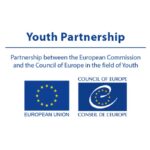E-learning Partial accessibility
How can we meaningfully engage young people? Lessons from the Symposium on Political Participation
Year of production: 2020
The Symposium: “The future of young people’s political participation: questions, challenges and opportunities”, hosted by the Partnership between the European Commission and the Council of Europe in the field of youth was held at the European Youth Centre in Strasbourg from 18-20 September 2019. More than 120 participants from Europe and beyond attended the symposium, including young people, young political activists, youth leaders, members of political organisations and youth wings of political parties, representatives of civil society organisations and movements, including youth organisations, journalists and influencers, young artists or activists using other public engagement forms, policy makers in the field of youth, youth workers, educators, teachers, and researchers. Young people’s political participation is central to the work of Partnership between the European Commission and the Council of Europe in the field of youth, and both of the partner institutions. Participation is not only an end, but also a means – this is why a Symposium not only explored the ways of young people’s political engagement today, but it also aimed to create a space for learning and participation of young people in the event itself, through co-creation methodology. Symposium was developed in line with the participatory approach, including young people and participants as co-creators, presenters, facilitators and rapporteurs of the sessions, and they also shaped the ideas on the future of political participation of young people.
Podcast - How can we meaningfully engage young people? Lessons from the Symposium on Political Participation
pjp-eu.coe.intAvailable in EN
Autor

The EU-CoE youth partnership is a co-operation programme between the European Commission and the Council of Europe in the field of youth, created in 1998. It is based on the principle of a balanced involvement of the partner institutions in terms of political priorities, management, funding and visibility.




